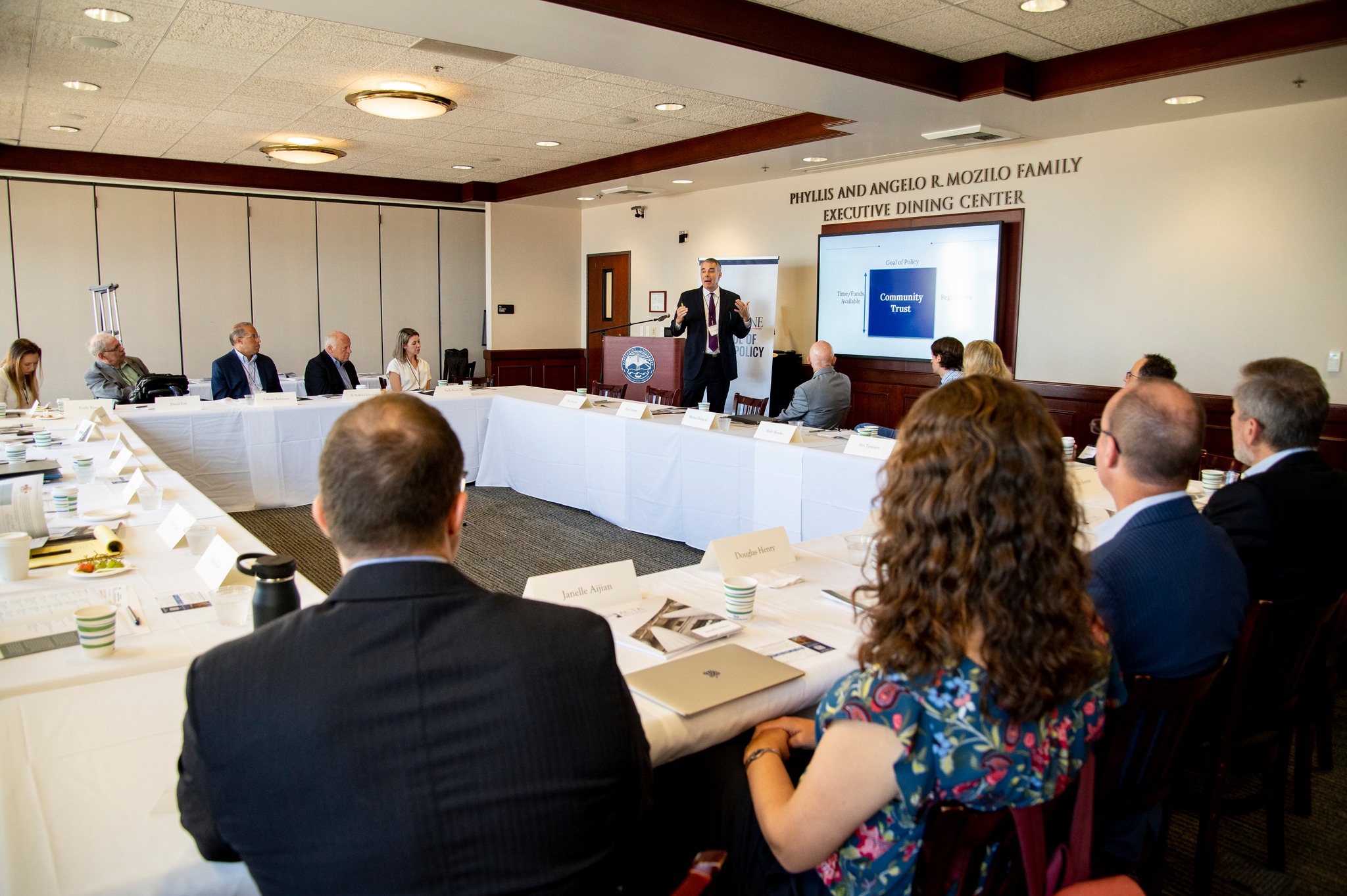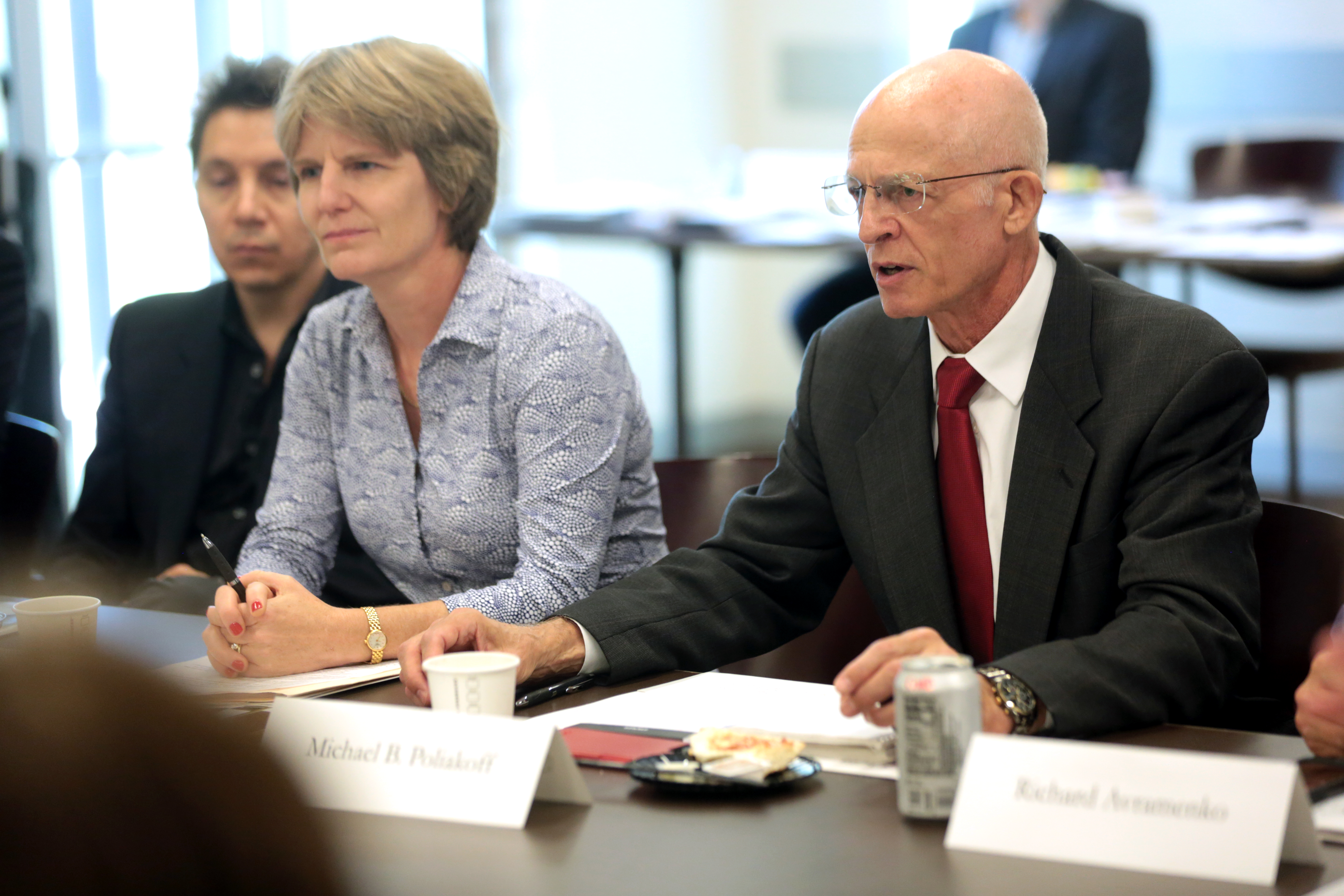The College Donor Digest
2022 Oases of Excellence Faculty Conference
October 31, 2022

On September 23, the American Council of Trustees and Alumni (ACTA) hosted its annual Oases of Excellence Faculty Conference in partnership with Pepperdine University’s School of Public Policy (SPP) in Malibu, California. The conference brought together 26 faculty members who lead outstanding campus programs for conversations about the opportunities and challenges facing higher education.
Campus centers earn designation as an “Oasis of Excellence” by promoting rigorous academic study, a strong liberal arts curriculum, and broad viewpoint diversity at colleges and universities. These faculty-led, donor-supported programs play a vital role in restoring the promise of higher education. The growing Oases of Excellence network currently includes 80 campus programs (see the full list at www.goacta.org/initiatives/oases-of-excellence/).
At the conference, faculty leaders participated in panel discussions on several key topics, including engaging students in civil discourse, opportunities for specialized graduate programs, ways to cultivate connections with alumni, and ensuring that students from a range of disciplines have access to a vibrant liberal arts education.
This year’s conference gathered both seasoned and newcoming ACTA faculty friends. Paul Carrese, founding director of Arizona State University’s School of Civic and Economic Thought and Leadership (SCETL), returned as a panelist to discuss SCETL’s vision and success. Faculty from institutions across California—including Thomas Aquinas College, Biola University, and Stanford University—joined us for the first time. Attendants represented diverse fields of studies, including philosophy, politics, economics, and music composition.
ACTA named the Pepperdine School of Public Policy as an Oasis of Excellence in 2019. SPP offers a master’s degree, which combines coursework in the humanities, like philosophy and history, with quantitative courses like economics and policy analysis. Pepperdine University is also one of only four schools in California to earn an “A” grade from ACTA’s WhatWillTheyLearn?® project by requiring students to study six or more core liberal arts subjects in their general education programs.
In a closing address, ACTA President Michael Poliakoff summarized key points made throughout the day by speakers and attendants. He remarked that the telos of colleges and universities must be educating students in the rigorous pursuit of truth. Higher education has its “base cut out from under it” when it fails to provide a solid liberal arts foundation upon which to build more specialized programs.
Dr. Douglas Henry, dean of Baylor University’s Honors College, delivered a keynote speech at the dinner following the panels. Dr. Henry won attention with his ABCs of the state of higher education today: “A is for abyss. B is for brink or broken. C is for collapse and crisis.” But he also offered hope that the study of the liberal arts can renew our colleges and universities. Against the backdrop of a Pacific Ocean sunset, he remarked, “Liberal education always and ever addresses itself to the human person, whose intellectual and spiritual liberation is at stake.”
After the conference, Shilo Brooks, assistant director of the James Madison Program at Princeton University, commented, “I am a big ACTA fan, and this conference only reaffirmed my affection.” When asked about the most valuable takeaway from the event, Siri Terjesen, associate dean for research and external relations at Florida Atlantic University’s College of Business, said, “There are others in academia who are defending the liberal arts, all in different ways. We can learn from and with one another and we are not attempting our work alone.”







